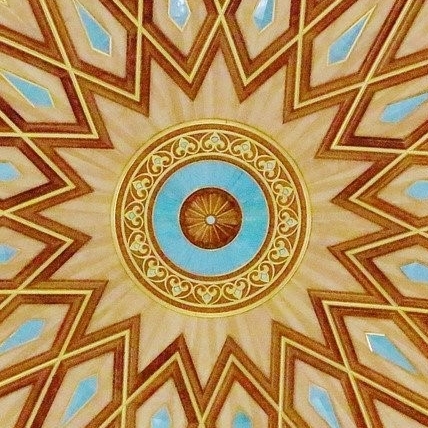Is Our Master Muhammad (Allah Bless Him and Give Him Peace) the Last Messenger or the Last Prophet?
Answered by Sidi Wasim Shiliwala
Question: 1. What is the difference between a rasul and a nabi?
2. Is the Prophet Muhammad (peace be upon him) the last of both?
3. What about in our times when people receive messages from Allah?
Answer: Walaikum As-salaam wa Rahmatullahi wa Barakatuhu,
Firstly, may Allah reward you for your concern on such an important subject! Knowledge of revelation and prophecy is a crucial element of our creed (aqida), as it helps us understand the unique and special characteristics of the various Prophets (upon them be peace).
The Difference between a Prophet (nabi) and a Messenger (rasul)
In his commentary on the famous text of Sunni creed Jawhara al-Tawhid, Imam al-Bajuri provides useful definitions of the terms you asked about in your first question.
He defines a prophet (nabi) as a human being who is “free from all repulsive qualities, [and] given a revealed law that he enacts, even if he was not commanded to spread it.”
In contrast, Imam al-Bajuri defines a messenger (rasul) as someone who has the qualities of a prophet “but with the additional stipulation [of him being] commanded to spread [his message].”
In other words, the main difference between a prophet and a messenger pertains to spreading the revealed message (tabligh): messengers only include those commanded to spread the revelation they receive, while prophets include both those who received that command and those who didn’t. This means, as Imam al-Bajuri explains, that “every messenger is a prophet, but not vice-versa.” [Bajuri, Tuhfat al-Murid `ala Jawharat at-Tawhid]
The Final Prophet and Messenger (peace be upon him)
In the 40th verse of Surah Al-Ahzab, Allah calls Muhammad (peace be upon him) the “messenger of Allah and the seal of the prophets” (khatam al-nabi’in). Given that the definition of a prophet is broader than that of a messenger, this verse indicates that Muhammad (peace be upon him) is the last of the prophets as well as the last of the messengers.
Indeed, this one line teaches us two important facts about the Prophet Muhammad (peace be upon him). Firstly, he (peace be upon him) was a messenger of Allah, meaning that he received revelation and was also commanded by Allah to spread that message. Secondly, he (peace be upon him) is the final prophet, meaning that no one after him will receive revelation. Indeed, even ‘Isa/Jesus (peace be upon him) will rule by the laws of Islam upon his return to earth.
The finality of this message is even further emphasized by Allah in one of the last verses He revealed to the Prophet (peace be upon him): “Today I have perfected your religion for you, completed My favor upon you, and approved Islam for you as a religion” (5:3). [For a more complete discussion of 33:40, see the relevant commentary from Mufti Muhammad Shafi’s Ma’ariful Qur’an]
Between Prophecy and Sainthood
Before discussing the differences between Prophets and Saints, it is first important to understand who a wali (saint) is. Imam al-Bajuri defines a wali as “a knower of God the Exalted and His attributes as much as is possible, one who is diligent to obedience [of God, and] an avoider of sins – meaning that he does not commit a sin without repenting [for it].” What’s important to note here is that the awliya (plural of wali) achieve their nearness to Allah only through following the Prophet (peace be upon him).
According to Sunni creed, it is possible for miracles (karamaat) to be manifested at the hands of the awliya. For example, the Caliph Umar ibn al-Khattab (may Allah be pleased with him) miraculously warned faraway Muslim troops of an oncoming enemy. Similarly, while revelation (wahy) is specifically given to prophets, Allah also might speak to His righteous servants in dreams (ilham) or give them deep spiritual insights (kashf). It is related, for example, that Imam Ahmad ibn Hanbal spoke with Allah in a dream, wherein Allah told him that reciting the Qur’an is a means of achieving closeness to Him. [Bajuri, Tuhfat]
However, such miraculous events differ from Prophetic miracles (mu’jizaat) and revelation (wahy) in that they are not accompanied by any claim to Prophecy or revelation. Rather, they are personal gifts and blessings bestowed by Allah to his righteous servants. As such, they are not and cannot be used to alter the perfected guidance brought by the Prophet (peace be upon him). Furthermore, they are in reality miracles of the Prophet (peace be upon him), as such miracles occur only to those who wholeheartedly strive to follow his sunnah, both in terms of his inner character and outer actions. Such miracles confirm the exalted status of the Prophetic way. [Sabuni, Al-Bidaya fi Usul al-Din]
Conclusion – the Best Guidance is that of the Prophet Muhammad (peace be upon him)
The above paragraphs convey the following crucial points about prophecy:
1. Muhammad (peace be upon him), as a prophet and messenger, was given revelation and commanded to spread it;
2. Muhammad (peace be upon him) was the final prophet and messenger; and
3. Awliya may receive miracles and divine inspiration, but they cannot in any way alter the already complete message of Islam. To the contrary, such miracles only confirm the soundness and blessing of the Prophetic way, and are therefore miracles of the Prophet Muhammad (peace be upon him).
With all of this in mind, we should come to the conclusion that all true religious guidance comes from the Prophet Muhammad (peace be upon him), and that we only accept that knowledge which is connected to him through the Qur’an, Sunnah, and sound Muslim scholarship. Anyone who calls to other than this, or claims to have religious knowledge that contradicts this, must be avoided.
Allah knows best, and He is the best of Guiders.
Jazakum Allahu Khairan,
-Wasim
Checked & Approved by Faraz Rabbani
